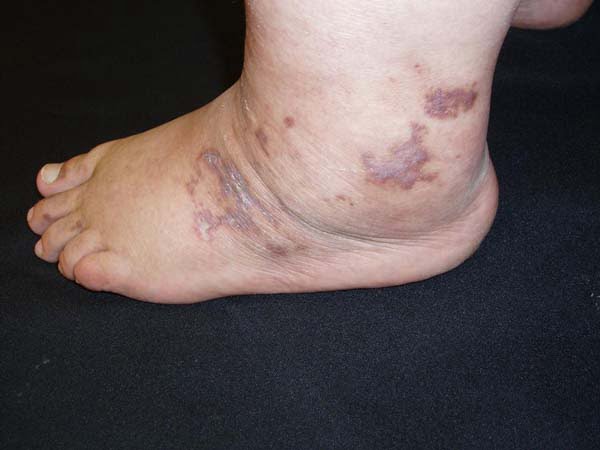Antiphospholipid Syndrome (APS)
Diagnosis:
If you’ve experienced unexplained blood clots or pregnancy loss, your health care provider can conduct blood tests to check for clotting and the presence of APS antibodies.
Confirmation requires these antibodies to appear in your blood at least twice, with tests conducted 12 or more weeks apart.
Treatment for Blood Clots:
Initial treatment involves blood-thinning medications.
Common options: Heparin (fast-acting, via injections) and Warfarin (pill form, takes days to take effect).
Aspirin is also used as a blood thinner.
Regular blood tests monitor clotting ability and bleeding risk.
Other Potential Drugs:
Hydroxychloroquine, rituximab, and statins may be helpful in APS treatment.
Further research is needed.
Pregnancy Management:
Successful pregnancies are possible with APS.
Treatment typically involves heparin or heparin with aspirin.
Warfarin is avoided during pregnancy due to its impact on the fetus.
Certainly! Here are some self-care tips for managing Antiphospholipid Syndrome (APS):
Preventing Injury and Bleeding:
If you’re on blood-thinning medications, take extra precautions:
Avoid contact sports or activities that could cause bruising or injury.
Use a soft toothbrush and waxed floss.
Shave with an electric razor.
Be cautious when handling knives, scissors, and other sharp tools.
Women should avoid using estrogen therapy for contraception or menopause.
Diet and Supplements:
Discuss with your health care provider:
Vitamin K: It can affect the effectiveness of warfarin. Limit vitamin K-rich foods like avocado, broccoli, Brussels sprouts, cabbage, leafy greens, and garbanzo beans.
Alcohol: It can enhance warfarin’s blood-thinning effect.
Be aware of interactions with medications, vitamins, and herbal products (e.g., garlic, ginkgo, green tea).
Pre-Appointment Preparation:
Check for any pre-appointment restrictions.
Make a list of:
Signs or symptoms and when they started.
Key personal information, recent events, and life changes.
Medical history, including other conditions and infections.
Medications, vitamins, and supplements you take (include doses).
Questions to Ask Your Doctor:
Consider having a family member or friend accompany you.
Ask your doctor:
Likely cause of symptoms.
Necessary tests.
Recommended treatment.
How treatment effectiveness will be assessed.
Risk of other medical problems.
Pregnancy-related risks and available treatments.
Request brochures or recommended websites.
Doctor’s Questions:
Be prepared to answer questions about:
History of strokes or blood clots.
Pregnancy complications (high blood pressure, miscarriage, stillbirth).
Autoimmune disorders (e.g., lupus).
Testing for sexually transmitted infections or chronic viral diseases.
Frequent headaches.
Red, net-like rash on wrists or knees.
Smoking status.
| Aspect | Summary |
|---|---|
Overview | APS involves immune system antibodies attacking body tissues, leading to blood clots. |
Symptoms | – Blood clots (legs, lungs) – Repeated miscarriages – Stroke – Rash (lacy pattern) |
Less Common Symptoms | – Neurological symptoms – Cardiovascular disease – Low blood platelet counts |
Diagnosis | Blood tests for APS antibodies, confirmed over 12 weeks |
Treatment for Clots | – Heparin (fast-acting) – Warfarin (pill form) – Aspirin |
Other Potential Drugs | – Hydroxychloroquine – Rituximab – Statins (more research needed) |
Pregnancy Management | – Heparin or heparin with aspirin – Avoid warfarin |
Self-Care Tips | – Prevent injury and bleeding – Be cautious with medications and diet |
Preparing for Appointment | – Gather relevant information – Prepare questions for your doctor |


